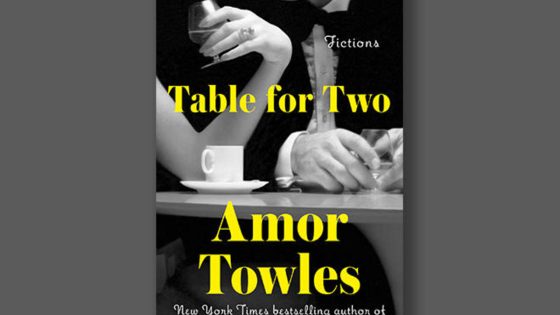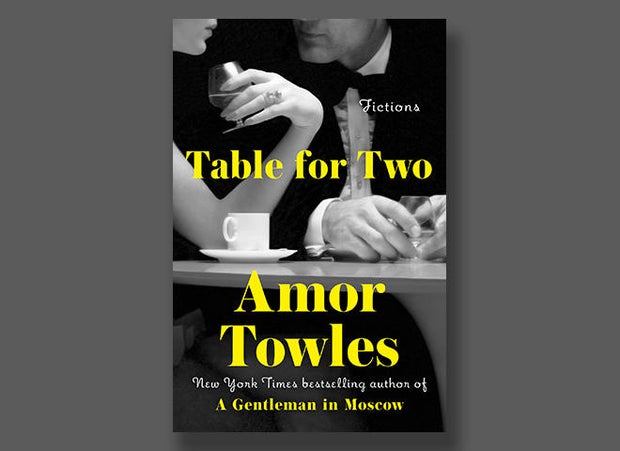Viking
We may receive an affiliate commission from anything you buy from this article.
Amor Towles, the novelist behind the international bestseller “A Gentleman in Moscow,” returns with “Table for Two” (Viking), an irresistible collection of short stories and a novella flavored with wit, intrigue, and a dash of bitter fate.
Read an excerpt below, in which the sacrosanct holiday of Thanksgiving is pierced with some bitter truths that just might be hard to swallow.
“Table for Two” by Amor Towles
Prefer to listen? Audible has a 30-day free trial available right now.
That Thanksgiving has evolved over hundreds of years into a national holiday of eating is rather ironic given the quality of Thanksgiving food. Stuffing and roasting a twenty-pound turkey is, without a doubt, the worst possible way to enjoy a game bird. The whole notion of eating a game bird is to savor those subtleties of flavor that elude the domesticated hen. Partridge, pheasant, quail are all birds that can be prepared in various ways to delight the senses; but a corn-fed turkey that’s big enough to serve a gathering of ten or more is virtually impossible to cook with finesse. The breasts will inevitably become as dry as sawdust by the time the rest of the bird has finished cooking. Stuffing only exacerbates this problem by insulating the inner meat from the effects of heat, thus prolonging the damage. The intrinsic challenge of roasting a turkey has led to all manner of culinary abominations. Cooking the bird upside down, a preparation in which the skin becomes a pale, soggy mess. Spatchcocking, in which the bird is drawn and quartered like a heretic. Deep frying! (Heaven help us.) Give me an unstuffed four-pound chicken any day. Toss a slice of lemon, a sprig of rosemary, and a clove of garlic into the empty cavity, roast it at 425˚ for sixty minutes or until golden brown, and you will have a perfect dinner time and again.
The limitations of choosing a twenty-pound turkey as the centerpiece of the Thanksgiving meal have only been compounded by the inexplicable tradition of having every member of the family contribute a dish. Relatives who should never be allowed to set foot in a kitchen are suddenly walking through your door with some sort of vegetable casserole in which the “secret ingredient” is mayonnaise. And when cousin Betsy arrives with such a mishap in hand, one can take no comfort from thoughts of the future, for once a single person politely compliments the dish, its presence at Thanksgiving will be deemed sacrosanct. Then not even the death of cousin Betsy can save you from it, because as soon as she’s in the grave, her daughter will proudly pick up the baton.
Served at an inconvenient hour, prepared by such an army of chefs that half the dishes are overcooked, half are undercooked, and all are served cold, Thanksgiving is not a meal for a man who eats with discernment. So, I had quite happily excused myself from the tradition back in 1988, thereafter celebrating the Pilgrims’ first winter at a Chinese restaurant on Lexington Avenue.
But in the field of fine art, one must be prepared to make sacrifices. And if helping Peter see the benefits of divesting his painting meant eating a serving of sweet potatoes covered in marshmallows, then so be it. I awaited his call in a sanguine mood.
From “Table for Two” by Amor Towles, published by Viking, an imprint of Penguin Publishing Group, a division of Penguin Random House LLC. Copyright © 2023 by Amor Towles.
Get the book here:
“Table for Two” by Amor Towles
Buy locally from Bookshop.org
For more info:
Source Agencies




